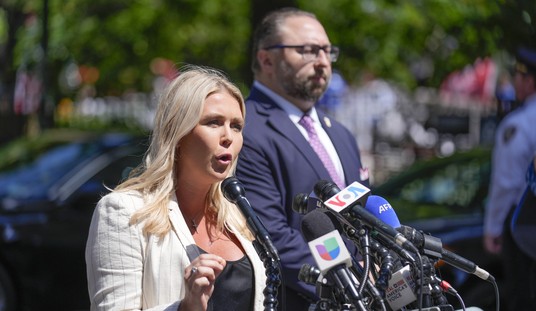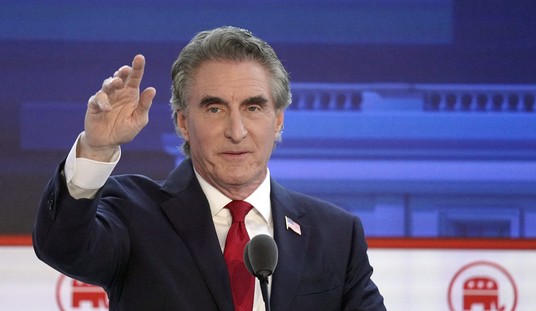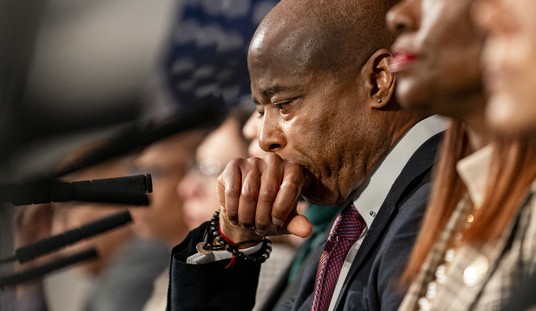This is all you need to know about the Democrats’ impeachment farce:
On November 8, 2016, nearly 63 million Americans from around the country chose Donald J. Trump to be the 45th President of the United States. Now, less than a year before the next presidential election, 231 House Democrats in Washington, D.C., are trying to undo the will of the American people. As one Democrat admitted, the pursuit of this extreme course of action is because they want to stop President Trump’s re-election.
Democrats in the House of Representatives have been working to impeach President Trump since his election. Democrats introduced four separate resolutions in 2017 and 2018 seeking to impeach President Trump. In January 2019, on their first day in power, House Democrats again introduced articles of impeachment. That same day, a newly elected Congresswoman promised to an audience of her supporters, “we’re going to go in there and we’re going to impeach the [expletive deleted].” Her comments are not isolated. Speaker Nancy Pelosi called President Trump “an impostor” and said it is “dangerous” to allow American voters to evaluate his performance in 2020.
The Democrats’ impeachment inquiry is not the organic outgrowth of serious misconduct; it is an orchestrated campaign to upend our political system. The Democrats are trying to impeach a duly elected President based on the accusations and assumptions of unelected bureaucrats who disagreed with President Trump’s policy initiatives and processes. They are trying to impeach President Trump because some unelected bureaucrats were discomforted by an elected President’s telephone call with Ukrainian President Volodymyr Zelensky. They are trying to impeach President Trump because some unelected bureaucrats chafed at an elected President’s “outside the beltway” approach to diplomacy.
The sum and substance of the Democrats’ case for impeachment is that President Trump abused his authority to pressure Ukraine to investigate former Vice President Joe Biden, President Trump’s potential political rival, for President Trump’s benefit in the 2020 election. Democrats say this pressure campaign encompassed leveraging a White House meeting and the release of U.S. security assistance to force the Ukrainian President to succumb to President Trump’s political wishes. Democrats say that Mayor Rudy Giuliani, the President’s personal attorney, and a “shadow” group of U.S. officials conspired to benefit the President politically.
The evidence presented does not prove any of these Democrat allegations, and none of the Democrats’ witnesses testified to having evidence of bribery, extortion, or any high crime or misdemeanor.
The evidence does not support the accusation that President Trump pressured President Zelensky to initiate investigations for the purpose of benefiting the President in the 2020 election. The evidence does not support the accusation that President Trump covered up the summary of his phone conversation with President Zelensky. The evidence does not support the accusation that President Trump obstructed the Democrats’ impeachment inquiry.
At the heart of the matter, the impeachment inquiry involves the actions of only two people: President Trump and President Zelensky. The summary of their July 25, 2019, telephone conversation shows no quid pro quo or indication of conditionality, threats, or pressure—much less evidence of bribery or extortion. The summary reflects laughter, pleasantries, and cordiality. President Zelensky has said publicly and repeatedly that he felt no pressure. President Trump has said publicly and repeatedly that he exerted no pressure.
Even examining evidence beyond the presidential phone call shows no quid pro quo, bribery, extortion, or abuse of power. The evidence shows that President Trump holds a deepseated, genuine, and reasonable skepticism of Ukraine due to its history of pervasive corruption. The President has also been vocal about his skepticism of U.S. foreign aid and the need for European allies to shoulder more of the financial burden for regional defense. Senior Ukrainian officials under former President Petro Poroshenko publicly attacked then-candidate Trump during the 2016 campaign—including some senior Ukrainian officials who remained in their positions after President Zelensky’s term began. All of these factors bear on the President’s state of mind and help to explain the President’s actions toward Ukraine and President Zelensky.
Understood in this proper context, the President’s initial hesitation to meet with President Zelensky or to provide U.S. taxpayer-funded security assistance to Ukraine without thoughtful review is entirely prudent. Ultimately, President Zelensky took decisive action demonstrating his commitment to promoting reform, combatting corruption, and replacing Poroshenko-era holdovers with new leadership in his Administration. President Trump then released security assistance to Ukraine and met with President Zelensky in September 2019—all without Ukraine taking any action to investigate President Trump’s political rival.
House Democrats allege that Ukraine felt pressure to bend to the President’s political will, but the evidence shows a different reality. Ukraine felt good about its relationship with the United States in the early months of the Zelensky Administration, having had several high-level meetings with senior U.S. officials between July and September. Although U.S. security assistance was temporarily paused, the U.S. government did not convey the pause to the Ukrainians because U.S. officials believed the pause would get worked out and, if publicized, may be mischaracterized as a shift in U.S. policy towards Ukraine. U.S. officials said that the Ukrainian government in Kyiv never knew the aid was delayed until reading about it in the U.S. media. Ambassador Kurt Volker, the key American interlocutor trusted by the Ukrainian government, said the Ukrainians never raised concerns to him until after the pause became public in late August.
The Democrats’ impeachment narrative ignores Ukraine’s dramatic transformation in its fight against endemic corruption. President Trump was skeptical of Ukrainian corruption and his Administration sought proof that newly-elected President Zelensky was a true reformer. And after winning a parliamentary majority, the new Zelensky administration took rapid strides to crack down on corruption. Several high-level U.S. officials observed firsthand these anticorruption achievements in Kyiv, and the security assistance was released soon afterward.
The Democrats’ impeachment narrative also ignores President Trump’s steadfast support for Ukraine in its war against Russian occupation. Several of the Democrats’ witnesses described how President Trump’s policies toward Ukraine to combat Russian aggression have been substantially stronger than those of President Obama—then under the stewardship of Vice President Biden. Where President Obama and Vice President Biden gave the Ukrainians nightvision goggles and blankets, the Trump Administration provided the Ukrainians with lethal defensive assistance, including Javelin anti-tank missiles.
The Democrats nonetheless tell a story of an illicit pressure campaign run by President Trump through his personal attorney, Mayor Giuliani, to coerce Ukraine to investigate the President’s political rival by withholding a meeting and security assistance. There is, however, no direct, firsthand evidence of any such scheme. The Democrats are alleging guilt on the basis of hearsay, presumptions, and speculation—all of which are reflected in the anonymous whistleblower complaint that sparked this inquiry. The Democrats’ narrative is so dependent on speculation that one Democrat publicly justified hearsay as “better” than direct evidence. Where there are ambiguous facts, the Democrats interpret them in a light most unfavorable to the President. In the absence of real evidence, the Democrats appeal to emotion—evaluating how unelected bureaucrats felt about the events in question.
The fundamental disagreement apparent in the Democrats’ impeachment inquiry is a difference of world views and a discomfort with President Trump’s policy decisions. To the extent that some unelected bureaucrats believed President Trump had established an “irregular” foreign policy apparatus, it was because they were not a part of that apparatus. There is nothing illicit about three senior U.S. officials—each with official interests relating to Ukraine— shepherding the U.S.-Ukraine relationship and reporting their actions to State Department and NSC leadership. There is nothing inherently improper with Mayor Giuliani’s involvement as well because the Ukrainians knew that he was a conduit to convince President Trump that President Zelensky was serious about reform.
There is also nothing wrong with asking serious questions about the presence of Vice President Biden’s son, Hunter Biden, on the board of directors of Burisma, a corrupt Ukrainian company, or about Ukraine’s attempts to influence the 2016 presidential election. Biden’s Burisma has an international reputation as a corrupt company. As far back as 2015, the Obama State Department had concerns about Hunter Biden’s role on Burisma’s board. Ukrainian anticorruption activists noted concerns as well. Publicly available—and irrefutable—evidence shows how senior Ukrainian government officials sought to influence the 2016 U.S. presidential election in opposition to President Trump’s candidacy, and that some in the Ukrainian embassy in Washington worked with a Democrat operative to achieve that goal. While Democrats reflexively dismiss these truths as conspiracy theories, the facts are indisputable and bear heavily on the Democrats’ impeachment inquiry.
In our system of government, power resides with the American people, who delegate executive power to the President through an election once every four years. Unelected officials and career bureaucrats assist in the execution of the laws. The unelected bureaucracy exists to serve the elected representatives of the American people. The Democrats’ impeachment narrative flips our system on its head in service of their political ambitions.
The Democrats’ impeachment inquiry, led by House Intelligence Committee Chairman Adam Schiff, is merely the outgrowth of their obsession with re-litigating the results of the 2016 presidential election. Despite their best efforts, the evidence gathered during the Democrats’ partisan and one-sided impeachment inquiry does not support that President Trump pressured Ukraine to investigate his political rival to benefit the President in the 2020 presidential election. The evidence does not establish any impeachable offense.
But that is not for Democrats’ want of trying.
For the first phase of the Democrats’ impeachment inquiry, Chairman Schiff led the inquiry from his Capitol basement bunker, preventing transparency on the process and accountability for his actions. Because the fact-finding was unclassified, the closed-door process was purely for information control. This arrangement allowed Chairman Schiff—who had already publicly fabricated evidence and misled Americans about his interaction with the anonymous whistleblower—to selectively leak information to paint misleading public narratives, while simultaneously imposing a gag rule on Republican members. From his basement bunker, Chairman Schiff provided no due process protections for the President and he directed witnesses called by the Democrats not to answer Republican questions. Chairman Schiff also ignored Republican requests to secure the testimony of the anonymous whistleblower, despite promising earlier that the whistleblower would provide “unfiltered testimony.”
When the Democrats emerged from the bunker for the public phase of their impeachment inquiry, Chairman Schiff continued to deny fundamental fairness and minority rights. Chairman Schiff interrupted Republican Members and directed witnesses not to answer Republican questions. Chairman Schiff refused to allow Republicans to exercise the limited procedural rights afforded to them. Chairman Schiff rejected witnesses identified by Republicans who would inject some semblance of fairness and objectivity. Chairman Schiff denied Republican subpoenas for testimony and documents, violating the Democrats’ own rules to vote down these subpoenas with no notice to Republicans.
Speaker Pelosi, Chairman Schiff, and House Democrats seek to impeach President Trump—not because they have proof of a high crime or misdemeanor, but because they disagreed with the President’s actions and his policies. But in our system of government, the President is accountable to the American people. The accountability to the American people comes at the ballot box, not in [the] House Democrats’ star chamber.
<End of Executive Summary>
Read the whole report here. Now Nadler’s gang will carry the Democrat farce forward on Wednesday.
The end.













Join the conversation as a VIP Member